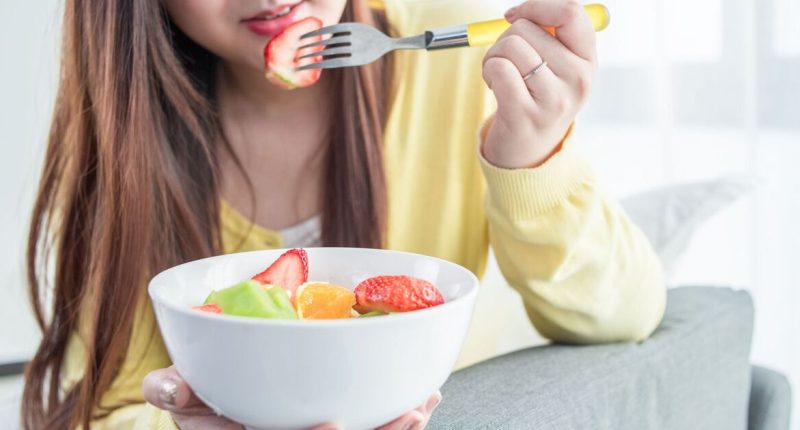Share this @internewscast.com
If you want to live a longer and healthier life, you’ll know that your diet plays a huge role in this. Making sure you’re eating plenty of nutritious and balanced meals is key for preventing diseases and boosting your overall health, but it’s not always easy knowing which foods are the most effective.
However, nutritionist and gut health expert Jordan Haworth has now simplified it a lot. He recently shared a video on TikTok talking about five of the best foods for living longer, as revealed in a recent study in the journal Nature. All of the foods are high in flavonoids, known for their antioxidant properties, and eating lots of these is associated with a lower risk of all-cause mortality and major chronic diseases.
Tea
This is something that many of us probably drink daily, but instead of your usual English Breakfast tea with milk and sugar, try green or black tea instead.
Jordan recommended aiming for two to three cups a day in order to really get the benefits. Both of these varieties are rich in antioxidants, which can decrease the risk of cell damage in the body and potentially cut the risks of chronic illness.
Red onion
This popular vegetable, which tastes great in a salad, also has plenty of health benefits. They’re rich in flavonoids, according to the experts at BBC Good Food, which have a ‘protective and anti-inflammatory effect’ on the body.
Onions are actually one of the richest sources of flavonoids you can eat, as they boast up to 25 different varieties of the essential compound. Jordan recommended making a quick pickled onion by slicing it up into thin strips and submerging it in apple cider vinegar, which you can serve on the side of your favourite lunches, dinners and salads.
Pink Lady apples
Not only are Pink Lady apples undoubtedly the tastiest variety you can buy, they’re also one of the healthiest too. According to Jordan, they contain the most flavonoids of any kind of apple.
These flavonoids are concentrated in the skin of the apple, so as long as you leave the skin on when you eat it, you’ll get the nutritional benefit. This also doesn’t go away when exposed to heat, so they’re still healthy whether you eat them raw or cooked.
Berries
Everyone probably buys a type of berry or two during the weekly shop, and because they’re so high in antioxidants, they’re the perfect healthy snack.
Jordan said: “Don’t just stick to one kind. Go for a variety to feed more of your gut microbes.”
Berries can be quite pricey, but the good news is that frozen is just as healthy as fresh, and a bag of mixed frozen berries will cost you significantly less than buying them fresh.
Dark chocolate
Finally, chocolate might be often seen as an unhealthy treat, but it all depends on the type you buy. According to Jordan, you should stick to a cocoa content of 75 percent or more if you want the more nutritional value.
He said: “The higher you go, the more flavonoids you get.”
According to Healthline, these antioxidants found in dark chocolate can help to prevent cell damage, lower bad cholesterol, and boost brain health.















